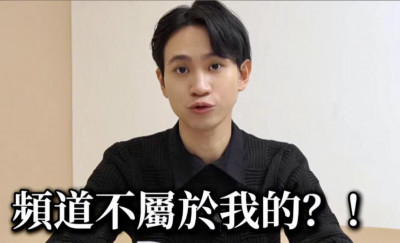《TAIPEI TIMES》 Military institutes AI ban

The logos of OpenAI and DeepSeek are pictured in an undated photograph. Photo: Bloomberg
By Aaron Tu and Shelley Shan / Staff reporters
Military personnel are prohibited from uploading military or personal data, or restricted information to ChatGPT, Gemini, DeepSeek (深度求索) or any other generative artificial intelligence (AI) services, the Ministry of National Defense said.
It also banned the use of the Taiwanese-developed Trustworthy Artificial Intelligence Dialogue Engine and Chungshan Institute of Science and Technology’s ANILA, which was specifically designed to handle military affairs.
Due to their diverse and powerful functions, generative AI platforms can gather a massive amount of data from users and learn about them to improve or create new products, the ministry said.
Any reckless use of AI platforms could lead to leaks of confidential military information, compromise personal data safety and infringe upon intellectual property rights, it said.
Military personnel are not allowed to upload military information, personal data or any information with restricted access to any generative AI platform, nor are they allowed to produce official documents using the services, it said.
As generative AI platforms can produce inaccurate or vague results, all military personnel should carefully scrutinize and verify information found on generative AI platforms before using them, it said, adding that they are also strictly forbidden to use generative AI platforms to engage in illegal activities or disrupt social order.
Personnel who leak confidential military information or damage the reputation of the military would face legal consequences, the ministry said.
Separately, the ministry said it is intensifying efforts to crack down on etomidate use after the Executive Yuan listed it as a Category 2 narcotic in November last year.
The substance, also known as “zombie vapes” when used in e-cigarettes, is a type of central nervous system depressant that can induce anesthesia.
In November last year, a military conscript was found with 50 tablets of etomidate during a security search.
Last year, the military used sniffer dogs to crack down on illegal drugs on military premises 525 times, Deputy Minister of National Defense Huang Yu-min (黃佑民) said in a meeting at the end of last year to review the military’s efforts to prevent hazards caused by narcotics.
A specialist from the National Police Agency was invited to address military personnel in the meeting on ways to deter the abuse of etomidate.
“The military is responsible for safeguarding national security, and drug prevention cannot be relaxed,” Huang said, adding that all military units would continue to bolster anti-drug efforts, strengthen awareness of law and discipline among officers and soldiers, and maintain the purity of troops.
新聞來源:TAIPEI TIMES












